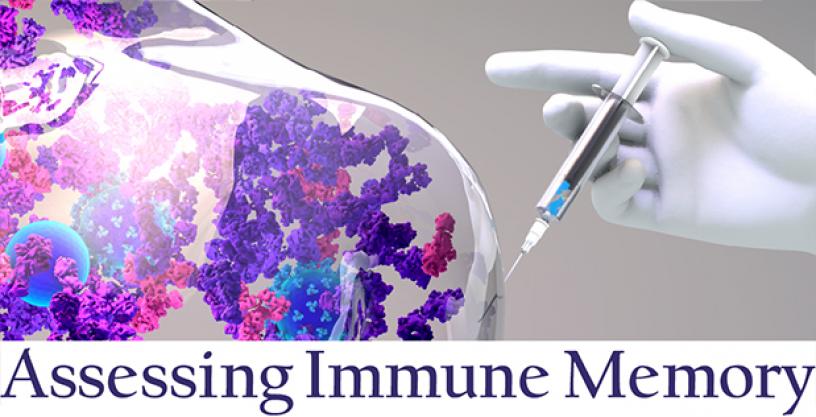
AIM Program aims to leverage host immune mechanisms to determine if vaccine candidates will provide long-lasting immune protection
Aug 27, 2021
Military service members rely on effective vaccination for the prevention of communicable disease and to guard against biothreat exposure, but current vaccine development is expensive, time-consuming and prone to failure. Many current vaccines do not provide effective protection over long periods of time, and there are multiple pathogens that lack prophylactic options. Immune response to vaccines is unpredictable, transient and ineffective, largely due to a lack of understanding of the complex mechanisms of action underlying immune memory. The Assessing Immune Memory (AIM) program seeks to develop a platform capability to predict immune memory informed by a systems-level view of the host response to vaccination and its mechanisms.
Standard methods for measuring immune system response, such as antibody levels and select immune cell type markers, do not capture the breadth of immune system responses possible. AIM will uncover new biomolecular correlates – collections of measured responses from organisms to an immune system challenge, such as vaccination – using leading edge technologies to enable earlier response detection. These correlates will be used to predict and understand why successful vaccines produce long-lasting protection from early host responses rather than waiting years for clinical trial results.
“It is a significant challenge in vaccine development to be able to predict how long a vaccine will be protective before it is administered to humans, and more importantly, why protection is conveyed or not,” stated Dr. Tristan McClure-Begley, AIM program manager. “The AIM program will incorporate next-generation analytical and computational approaches to determine the host response mechanisms that lead to long-lasting protection.”
The five-year program will be divided into two sequential phases. The goal of Phase 1, “Immune Memory Road Map” is to identify cell and signaling contributors to generate a “road map” of immune memory. Phase 2, “Road Map Generalizability and Tool Validation” will focus on assembling and validating a research and evaluation tool for predicting vaccine duration of protection. Teams must propose to both phases to develop comprehensive, enduring solutions.
“Success with AIM will provide the nation with upfront assessments of vaccine duration of protection early in development and help reduce the need for constant re-vaccination of operators upon deployment,” added McClure-Begley.
The U.S. Government will utilize Independent Validation and Verification (IV&V) partners throughout the program to aid in the evaluation of program progress and intermediate program demonstrations. By the end of Phase 1, a demonstration will be completed to determine entry into Phase 2. Upon successful demonstration of the underlying principles of AIM, the same technology can be explored for use in a prognostic capacity to predict individual levels of immune protection.
Additional details of the program schedule and metrics are available in the broad agency announcement at https://sam.gov/opp/ddbd04d4961f49acb576c529f837af93/view.
# # #
Media with inquiries should contact DARPA Public Affairs at outreach@darpa.mil
Associated images posted on www.darpa.mil and video posted at www.youtube.com/darpatv may be reused according to the terms of the DARPA User Agreement, available here: http://go.usa.gov/cuTXR.
Tweet @darpa
